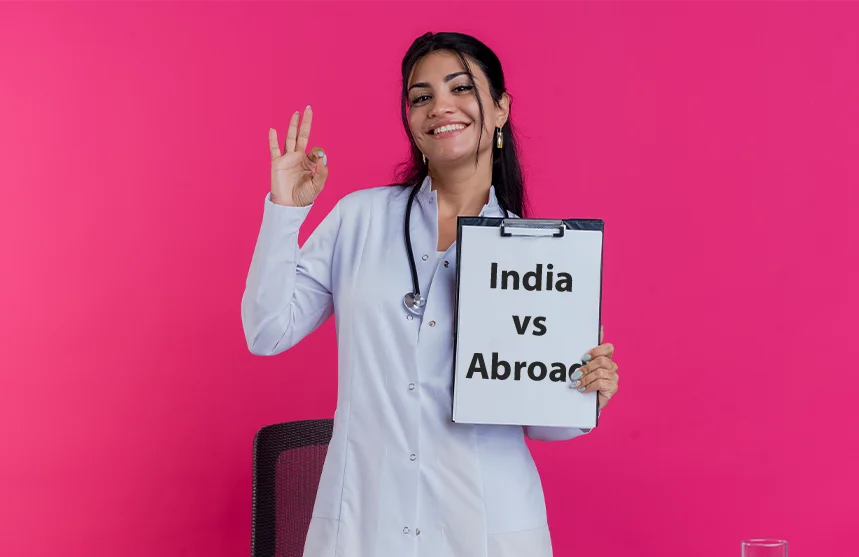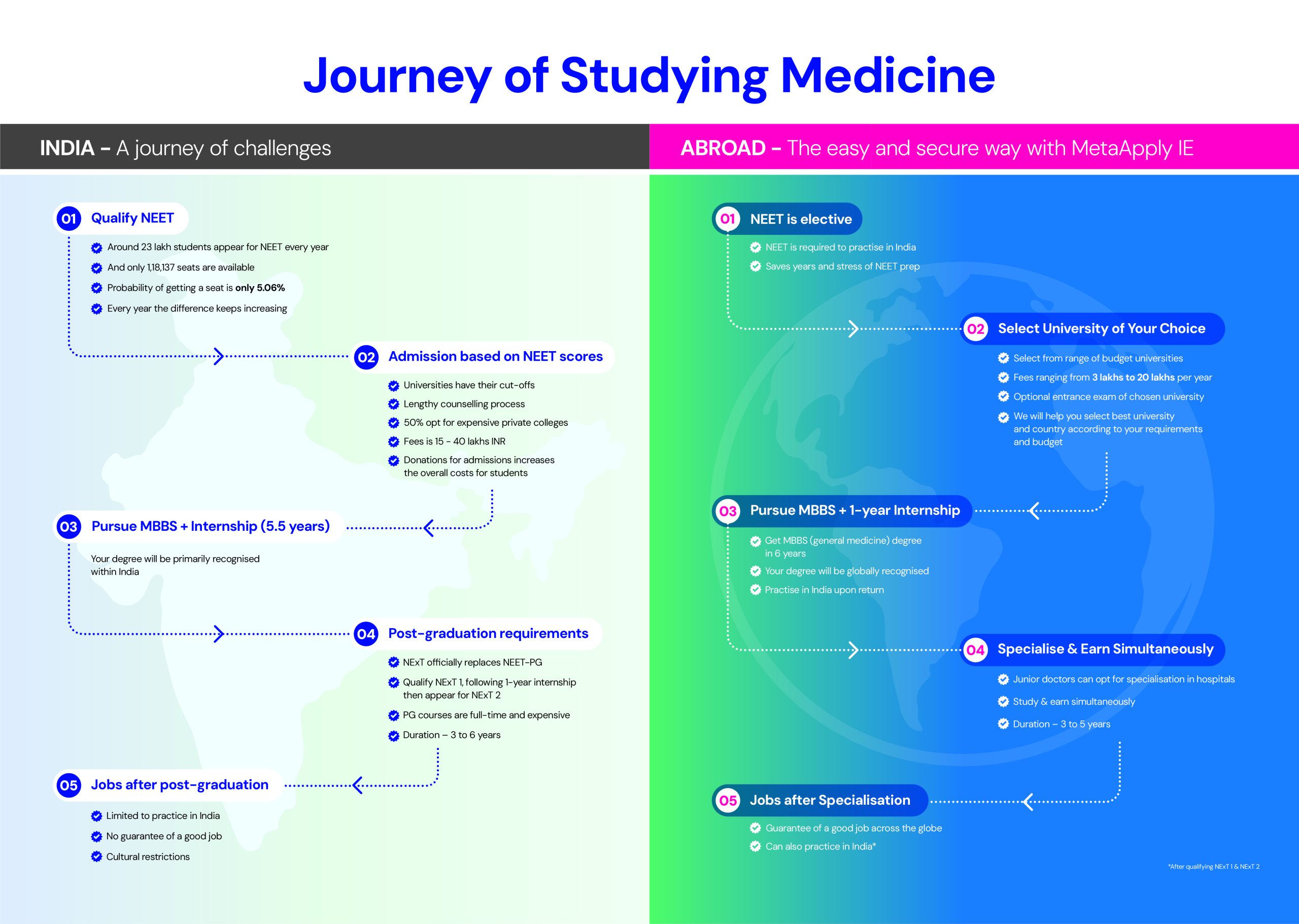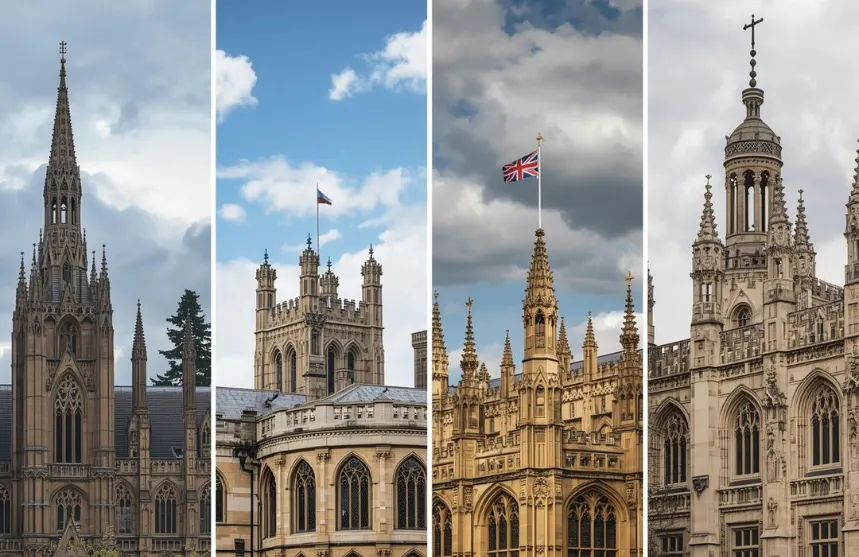How to Get Admission into World Class Universities
MBBS in India Vs MBBS Abroad- Which is Better?

The dream of becoming a doctor is cherished by thousands of students across India each year. While some are fortunate enough to turn that dream into reality, many others are left heartbroken due to various challenges. We completely understand and respect your passion for serving humanity and pursuing a career in healthcare. However, with the intense competition and limited medical seats in India, more students and parents are now turning their focus towards Studying MBBS Abroad.
In this blog, we explore the journey of pursuing MBBS in India versus MBBS abroad. So, if your NEET result didn’t quite open the door to a medical seat in India, don’t worry, we’ve got your Plan B covered. Studying MBBS abroad could be the next best step, and MetaApply IE is here to guide you through it. Let’s take a closer look at what the medical journey looks like both in India and overseas.

MBBS in India
For most Indian students, pursuing an MBBS degree in India is the natural first choice. However, there are several challenges along the way that you might not yet be aware of. Whether you’ve already received your NEET results or are planning to take the exam next year, it’s important to understand what lies ahead. Here’s what the journey of studying MBBS in India typically looks like, and the key challenges you’re likely to face.
Stage 1: The NEET Exam
The first stage of your MBBS journey begins with 2 years of preparation for the NEET exam. Every year, around 23 lakh students take the NEET exam. However, with only 1 lakh seats available in both private and government colleges in India, lakhs of students have to look for alternative options for their medical journey. Every year, this gap keeps increasing, making it difficult for students attempting the NEET exam for the second time.
Stage 2: Admission Process
Once the NEET results are declared, the counselling process begins for both the All India Quota (AIQ) and State Quota seats. Students who have cleared NEET with a higher cutoff become eligible to participate in the admission counselling process, and based on their course preferences, they are allotted seats across medical colleges in India. However, with limited government seats and extremely high donation fees in private institutions, securing admission within India becomes a significant challenge for many students.
Stage 3: Academics + Training
The MBBS course in India takes 5.5 years to complete; 4.5 years of classroom learning followed by 1 year of internship and training at local hospitals. One of the main drawbacks of studying MBBS in India is the large class sizes, with one professor for every 10 students and one assistant professor for every 5. The curriculum is mostly theory-based, and some parts are outdated, which means students often miss out on gaining strong practical skills.
Stage 4: Post-MBBS Career Options
For Indian students, the journey after MBBS usually involves pursuing post-graduation or specialisation in a top medical field to earn better. However, the competition for NEET PG is even tougher than NEET UG, as there are fewer seats and more applicants. After spending 5.5 years completing an MBBS degree in India, students must invest another 3 years for specialisation, and even then, there’s no guarantee of landing a good job in their chosen field.
Essential Factor- The Cost
One of the biggest essential factors to take in consideration during the MBBS in India journey is the cost of education. The total cost of MBBS education for 5.5 years ranges from ₹50,000 to ₹1.5 crores depending on college and location. In this the hidden costs, donations, and living expenses can be an additional burden.
MBBS Abroad
Students who fail to secure an MBBS seat in India either look for the next best option in the medical stream and choose dentistry or they drop the idea of becoming a doctor altogether. Those who are stick to the idea of clearing NEET and getting their medical journey start keep walking on to the same path. However, what if we tell you, you don’t have to wait another year to get started with your MBBS journey? Yes, you can begin your MBBS journey abroad. Here is how it is going to look like.
Step 1: NEET Qualification and University Selection
No matter what your NEET score is, whether average or below average, you still have the chance to become a doctor by choosing to study MBBS abroad. The only requirement is to clear the NEET exam, which is necessary for studying medicine overseas and later returning to India to practise.
To begin your journey, you simply need to select an International University that is approved by both the WHO and NMC, and offers English-taught programmes. While researching, make sure to consider universities that fit your budget, provide additional student benefits, and offer strong global career opportunities after graduation.
Step 2: Admission Process
While the MBBS admission process in India is a lengthy one and you get to study in a university selected for you. It is nothing like the same in abroad. It is relatively easier to get admission abroad in any of your preferred universities by shortlisting them as per your budget. For the MBBS admission abroad, all you need is a valid passport, NEET score, university acceptance letter, and medical clearance certificate. You are not required to take any additional exams to get admission in a medical university abroad.
Step 3: Medical Education Abroad
The medical journey abroad is usually 6 years long. Here 5 years are of practical education and 1 year of medical training in local hospitals. The curriculum abroad includes pre-clinical, para-clinical, and clinical subjects. Clinical rotations start from 3rd or 4th year in university-affiliated hospitals. The mode of studies is generally English for easy accessibility for Indian and international students. The major focus is on practical training to make students well-educated on medical front.
Step 4: Post-graduation Options
By completing your MBBS degree from any foreign medical school, you get the opportunity to work anywhere in the world. All you need do to is clear the licensing exam so that you can practice medicine in any preferred country you want. Furthermore, if you want to practice medicine in India, you need to clear the NExT exam and get your license. Your medical degree is as valuable in India as it is anywhere in the world if it is WHO and NMC approved.
Essential Factors- Budget-friendly Universities
It is a well-believed myth amongst Indian people that Education Abroad is expensive. The medical journey that you will be completing in under ₹1 crore in India, the same education for 6 years will be completed in maximum ₹50 Lakhs in countries likes Russia, Hungary, Uzbekistan, Kyrgyzstan, and more. All you have to do is find the best suited, budget-friendly university that gives the best student and post-graduation benefits.
An Overview of MBBS in India vs MBBS Abroad
Here’s a complete overview of MBBS in India vs MBBS abroad for your easy understanding.
| Parameter | MBBS in India | MBBS Abroad |
|---|---|---|
| Entrance Exam | NEET (high cutoff required) | NEET (qualification only, low cutoff accepted) |
| Admission Process | Centralized counselling, highly competitive | Direct admission, simplified process |
| Number of Seats | ~1 lakh (govt + private) | Ample seats across various countries |
| Course Duration | 5.5 years (including 1-year internship) | 5–6 years (varies by country) |
| Medium of Instruction | English / Regional languages | English (in most universities) |
| Clinical Exposure | High patient load, diverse cases | Early clinical training, structured rotations |
| Infrastructure | Good in govt colleges, varies in private | Modern labs, smaller class sizes |
| Cost (Total Tuition) | ₹50K–₹1L (govt) / ₹50L–₹1Cr (private) | ₹20L–₹45L (varies by country) |
| Capitation Fees | Often charged in private colleges | Not applicable |
| Living Cost | Moderate to high (metro cities) | Moderate (country dependent) |
| Licensing Exam | NEXT (for practice & PG) | NEXT (India), USMLE, PLAB, FMGE (as applicable) |
| Return for Practice in India | Direct after NEXT | After NEXT or FMGE + NMC-approved university |
| Global Career Scope | Limited unless cleared foreign licensing exams | Wider opportunities (USA, UK, AUS, etc.) |
| Cultural Comfort | High – home country | Requires adaptability to new culture |
| Personal Growth | Moderate | High – international exposure |
| Ideal For | High NEET scorers, low budget govt seats | Average NEET scorers, global career aspirants |
Know your Best MBBS Plans with MetaApply IE Consultation
No matter what your NEET result is. Even if it is bad according to Indian standards, before you decide to reappear for the exam or think of switching the majors, you better consult with MetaApply IE counsellors. We understand the importance of your MBBS abroad dream and hence, we bring to you the best options to fulfil your dream of becoming a doctor one day.
This is why MetaApply IE brings to you your plan B of MBBS abroad. We help you in shortlisting budget-friendly universities in countries that are offer best post-graduation opportunities.
So, don’t shatter with your result, get it touch with our counsellors and find a solution.
Frequently Asked Questions
If you secure a government seat, MBBS in India is ideal. But if not, then MBBS abroad is also good for you. Offering affordable options, modern infrastructure, and global exposure, especially for average NEET scorers aiming for international career opportunities.
Countries like Russia, the Philippines, Georgia, and Kazakhstan are popular among Indian students for NMC-approved universities, affordable fees, English-taught programs, and smooth admission processes. Each has unique strengths depending on budget, language, and future goals.
The USA offers the highest scope for MBBS graduates due to advanced medical education, high salaries, global recognition, and research opportunities. However, it requires clearing USMLE and years of preparation for specialisation and practice.


















































